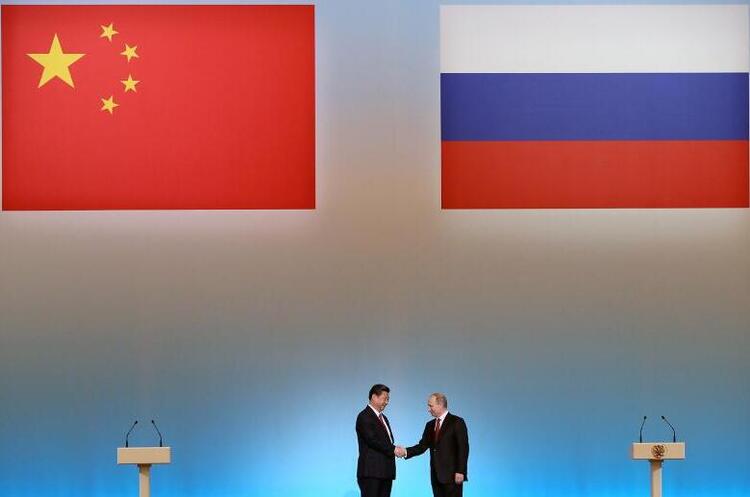Chinese Ambassador to the EU: "In reality, China's support for Russia is not unlimited, it's just rhetoric"
Fu Qiong said that China has not provided military assistance to Russia and will not in the future

On the eve of the visit to China by European Commission President Ursula von der Leyen and French President Emmanuel Macron, Chinese Ambassador to the European Union Fu Cong gave a lengthy interview to The New York Times, in which he said that the West misunderstands Chinese narratives and that China's friendship with Russia is not that close.
In particular, the ambassador downplayed Russia's and China's claim of "boundless" friendship.
Just three weeks before Russia invaded Ukraine, Presidents Vladimir Putin and Xi Jinping signed a joint statement proclaiming the "boundlessness" of their friendship. But Mr. Fu Cong said China did not side with Russia in the war and some people "deliberately misinterpret this.
"Boundless" is nothing but rhetoric, he added.
Fu Cong said that China did not provide military assistance to Russia and did not recognize the annexation of Ukrainian territories, including Crimea and Donbas.
According to him, Beijing did not condemn the invasion because it understood from Russia's statements that it was a "defensive war against NATO's invasion" and because his government believes that "the root causes of the war are more complex" than Western leaders say.
When asked why Xi Jinping had not yet agreed to a phone call with Ukrainian President Volodymyr Zelensky, he insisted that the lack of a call was not a big deal, that Mr. Xi was very busy, and that there were frequent lower-level contacts between the two countries. Western analysts contrast this lack of communication with the close contacts between Xi Jinping and Putin, including Xi's trip to Moscow last month.
"The fact that President Xi is not talking to Zelenskiy does not mean that China is on Russia's side on the Ukrainian issue," he said.
The ambassador said that China would not supply Russia with weapons for use in Ukraine, either now or in the future, and criticized US Secretary of State Anthony Blinken, who has repeatedly stated on TV that China could provide Russia with lethal weapons.
On March 21, Putin and Xi Jinping met in the Kremlin and signed two documents: one on economic cooperation and the other on expanding the partnership between the two countries.
Before that, on February 24, the anniversary of the war in Ukraine, the Chinese Foreign Ministry published its 12-point plan to end the "Ukrainian conflict."
Background. As a reminder, Macron and von der Leyen will travel to China together in early April to talk about Ukraine.
If you have read this article to the end, we hope that means it was useful for you.
We work to ensure that our journalistic and analytical work is of high quality, and we strive to perform it as competently as possible. This also requires financial independence. Support us for only UAH 196 per month.
Become a Mind subscriber for just USD 5 per month and support the development of independent business journalism!
You can unsubscribe at any time in your LIQPAY account or by sending us an email: [email protected]



